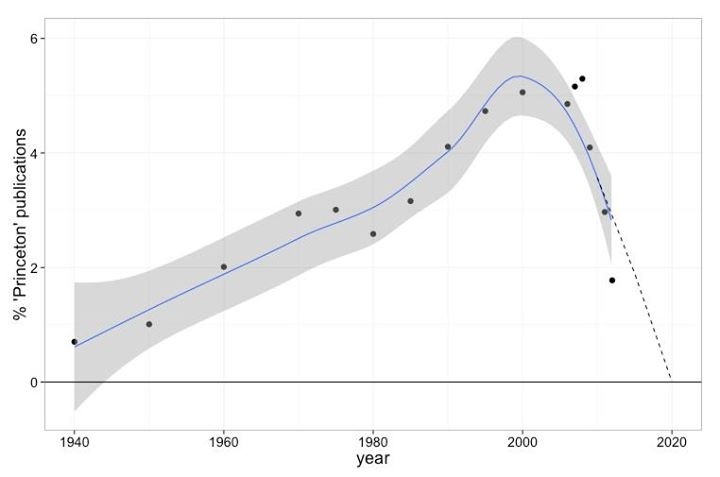Not to be outdone by Princeton's recent paper predicting the death of Facebook by 2017, the social network's own "scientists" have applied the school's same robust methodology to, well, Princeton University. In keeping with the same principle of "correlation equals causation," Facebook soon realized an "alarming trend" of their own: Princeton will have no students at all by 2021.
If you recall, Princeton attempted to liken Facebook to an epidemic spreading through society like a contagious disease. Once users have become immune to the site's attraction, the paper noted, they will eventually lose interest. Researchers predict that will happen sometime between 2015 and 2017.

Key to Princeton's research is search data. The team noted that searches for "Facebook" have been on the decline since 2012 so that must mean people are visiting the site less, right? Well, it's obvious to see how this method of thinking can be flawed in so many ways.
Sure, when Facebook was beginning to take off several years ago, it's easy to see how many people would have used a search engine to access the site. But over time, people will have either memorized the ridiculously easy URL, added a bookmark for the site or even more damning, started accessing exclusively on a mobile device via a dedicated app.
Of course, that's not to say that Facebook isn't without its own set of faults as it continues to face increased pressure from teen-friendly apps like Snapchat and WhatsApp. But do you really think the site will fade away in just three years' time?
MySpace may have vanished rather quickly, yes, but lest we forget that it was because of Facebook.